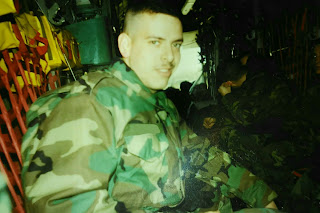The Truth About Canadian Healthcare
By Alain Lambert
Why can’t America’s healthcare system be more like Canada’s?
Here’s what most people who ask that question think they know about Canadian-style healthcare:
1. Everybody gets covered.
2. It’s free.
3. It’s great.
Number one is true. Everybody is covered.
Number two is false. Nothing is free. Canadians pay for their insurance through their taxes. And, as you might expect, the tax rates in Canada are very high.
And number three is… well, let’s just say it’s questionable. Let’s find out how questionable. But before we do, let me tell you a bit about me.
I was born and raised in Montreal, Canada. That makes me French Canadian. I’m so French Canadian, my name—Alan—is spelled A-L-A-I-N. I have also lived and worked in the United States. I have experienced both Canadian health care and American health care. Here are some of my experiences with the Canadian system, the one so many Americans aspire to. I believe they are typical. So do the Canadians I know.
Experience #1:
In September 2000, my wife was seven months pregnant with our youngest daughter. One day, my wife started having severe lower back pain. She suspected kidney stones—she had them in the past. But she was very pregnant, so we needed to check it out. Kidney stones are bad, but something going wrong with the pregnancy would be a lot worse.
We went to the emergency room of our local hospital in Montreal. This was Thursday. She was admitted to the hospital and given morphine for her pain. She couldn’t get an ultrasound the next day because the machine for this procedure was fully booked.
She didn’t get the ultrasound during the weekend, either, because ultrasound operators don’t work on weekends. Finally, on Monday afternoon, she got the test—after I begged her doctor to do something so we could find out if indeed my wife had a kidney stone or something had gone wrong with the pregnancy. Thank God, it was the former and not the latter.
In the United States, a pregnant woman doesn’t wait a day to get an ultrasound if the baby’s health is in question. And ultrasound technicians are available on the weekend.
Experience #2:
One of my friends struggled with back issues for years. Eventually, he needed surgery. Like all people with non-life-threatening conditions in Canada, he was placed on a waiting list. The pain got so bad, after a few months he went to see the specialist and pleaded for an operation. The specialist asked, “Are you suicidal?” My friend responded, “No, I’m not suicidal—I need a back operation!” The specialist concluded, “If you are not suicidal, it means you can handle the pain.” Had my friend waited, his surgery would have been covered. Instead, he went to Florida and paid $20,000 out of his own pocket to have the surgery immediately.
In the United States, if you’re in terrible pain, you can get a back surgery within days.
Experience #3
Several years ago, I was diagnosed with polyps on my colon. Since I have a family history of colon cancer, I was advised to get a colonoscopy every year. I went to see my specialist in May to set up my next procedure. After a brief consult, he told me to book the colonoscopy with his secretary on my way out. She told me that the doctor could perform the procedure in November. Being used to long waiting times, I felt that was rather short, so I said, “Great, that works for me.” She replied, “Not this November. Next November.”
In the United States, you can get a colonoscopy in a few days, and certainly within a few weeks.
Experience #4
Just recently, a friend had a biopsy for prostate cancer. He had to wait three months to get the results. Sadly, the test came back positive. The earliest he could have surgery was three months after receiving the diagnosis. Needless to say, cancer doesn’t care about waiting lists. It grows and it spreads, sometimes beyond the point when treatment can be effective. I pray that my friend gets treated in time.
In the United States, you don’t have to wait three months to get the results of a biopsy. Or wait three months after that to get surgery if you need it.
But here’s the good news: Canadian hospice care is first-rate—caring and compassionate. Once you’re terminal, they take very good care of you.
That’s the Canadian system for you. And that’s what you aspire to?
I can tell you who will be really bummed out if you adopt it.
Canadians.
When we’re in trouble, we know where to go: the USA.
Don’t go the Canadian route, America. Make your healthcare system better, not worse. As our great Canadian singer-songwriter, Joni Mitchell, says in one of her most famous songs, “You don’t know what you’ve got ‘til it’s gone.”
I’m Alain Lambert for Prager University.
Want to get notifications for Articles and Updates at Tex's Place?
⭐⭐⭐⭐⭐
⭐⭐⭐⭐⭐
CLICK/TAP HERE for options⭐⭐⭐⭐⭐
Also, please be sure to check out some of my favorite places where you can read things from other great Patriots, Veterans, Conservatives and overall Good Folks. Click anywhere on this link to see "The Roster!"


